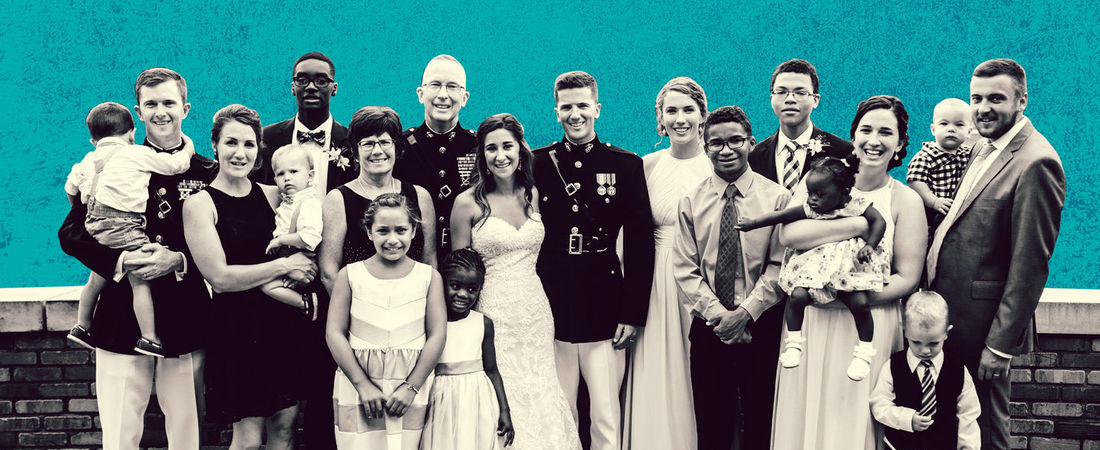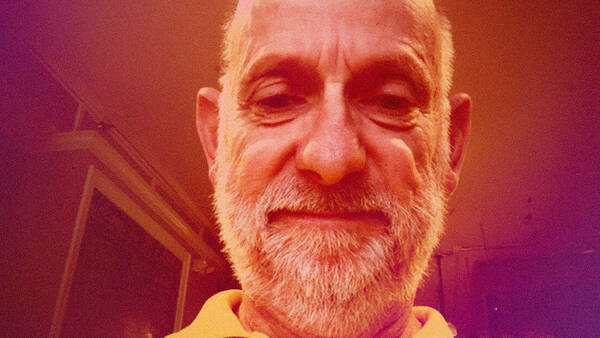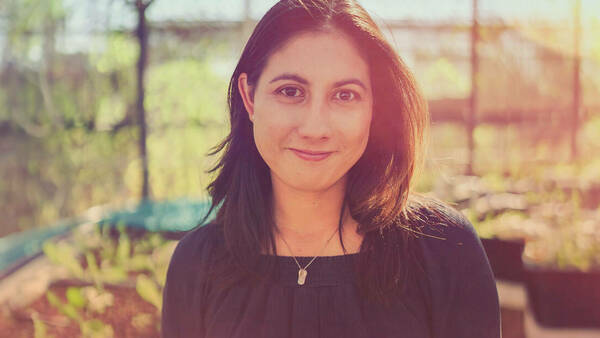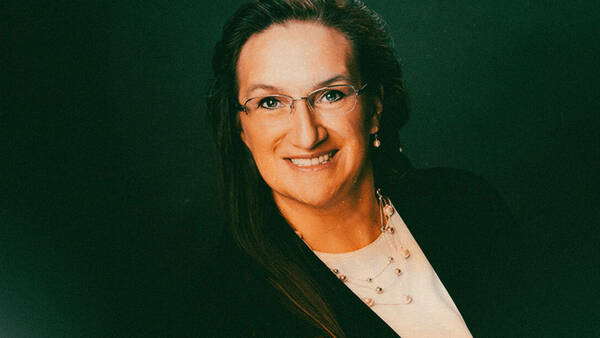Judge Joseph L. Falvey Jr., ’81, ’87 J.D. has led a tank platoon, ensuring young Marines are prepared for deployment.
He has had a long and distinguished legal career in the military that culminated earlier this year with his confirmation as a judge of the United States Court of Appeals for Veterans Claims, a post that enables him to ensure veterans receive the benefits they have earned.
But his biggest impact has been in his family life. Falvey and his wife, Anne M. (Day) Falvey, SMC ’84, have served as foster parents for fifteen children, five of whom they have adopted, raising them along with four biological children in a blended family that spans more than two decades. The Falveys’ oldest is 31, and their youngest is eight.
“I think it keeps you young,” Falvey says. “I’m still going to dance recitals and sports practices. Because I love it, it’s not a great sacrifice. People ask, ‘what’s your hobby?’ and I say, ‘it’s my kids.’”
Meeting a Need
Falvey credits his wife with the initial idea to serve as foster parents. He met her when mutual friends were married at Notre Dame.
“The night of the wedding reception, we sat next to each other, and during the conversation she told me that she wanted to have an orphanage,” he recalls. “And I thought it was just a bluff, a good line she might use with a guy who showed some interest in family life, but as I’ve learned, she wasn’t bluffing.”
As a teacher, he says, she saw children come to school showing signs of neglect, and she wanted to help. The couple married in 1986 and moved to California a year later when Falvey was assigned to Camp Pendleton to handle prosecution and defense roles in court-martial cases. Shortly after that, they applied to be foster parents.
“She saw there was a great need out there, and I think that was what her original draw was,” Falvey says. “I just cooperated, I just agreed to it. This was her. She’s really a saint.”
Later moves took the Falveys to Virginia in 1990, and to the Detroit area in 1994. Both times, they once again became foster parents, navigating a new state’s training and licensing requirements.
“When we started, it was not with a view toward adopting kids,” Falvey says. “We just thought there was a need out there for safe harbors for kids while their situations got sorted out. But over time, some of the children’s parents’ rights were terminated and social services would turn to us as the first alternative to place the child.”
Falvey says being part of a large blended family has profoundly shaped parents and children alike.
“As our kids aged, the older kids would help us out more and more,” he says. “And I think with all of them, having foster kids produced really empathetic, caring adults who really have a great love for service to others. So it’s been a great benefit. And I think, too, it made us all less self-centered. In a lot of ways you learn to live with and thrive in a little bit of chaos.”
And while some of his peers may look forward to being empty nesters, Falvey looks forward to many more years of parenting. He no longer stresses about things like messy bedrooms and children’s grades at school.
“I don’t feel like I’ve sacrificed anything,” he says. “I feel like instead I get to keep enjoying all the joys of parenthood while hopefully getting better as a parent as I go along.”
A Family Tradition of Service
Falvey’s family has a long military history, a tradition that influenced his decision to serve. One hundred years ago, his grandfather deployed to France during World War I. His father, who had hoped to attend Notre Dame, enlisted in the Army Air Corps during World War II and went to serve more than 30 years in the Air Force before taking his final job as head of the University’s Air Force ROTC.
But the family connections don’t end there. Falvey had two older brothers who served in the Navy and the Air Force. His two oldest sons went through Marine Corps ROTC at Notre Dame, and a daughter graduated from the Air Force Academy and is now an officer. In addition, a son-in-law and a daughter-in-law are both Marine Corps veterans.
“Military service runs in the family, runs very deeply within us,” says Falvey, who finished active duty in 1994 and retired from the Marine Corps Reserves in 2011 as a colonel. “That’s why the opportunity to be on the Court of Appeals for Veterans Claims was a great opportunity. It allows me to practice the law at the peak of my profession as a judge, but in a court that is devoted to those Americans who have sacrificed greatly for our freedoms and our country.”
The court reviews benefits claims—primarily disability claims—that have been denied by the Department of Veterans Affairs. The goal, Falvey says, is to review the department’s decisions as an independent judicial body, ensuring that claims have been handled properly.
Falvey, who was sworn in as a judge on the court in May, has a fifteen-year appointment. For him, it is a fulfilling end to a long legal career in the military.
“I’m both honored and humbled to serve in this capacity,” he says. “To practice in this particular court with this particular calling is just a tremendously rewarding opportunity for me.”



